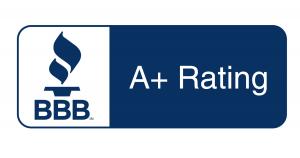Possession of a Controlled Substance
Under The Controlled Substance, Drug, Device, and Cosmetic Act in Pennsylvania drug possession is broken out into five categories known as schedules. The least serious possessions are considered Schedule V while the most serious are Schedule I. The schedules are broken out as follows:
- Schedule I – Those drugs which have been determined to have no known medical use. Possession of marijuana and heroin fall into this category.
- Schedule II – These drugs have limited medical use and have a high potential for abuse. These include cocaine, opiates, and methamphetamine.
- Schedule III – These drugs have been determined to have a medical use and are believed to have less potential for abuse. Lysergic acid (LSD) and anabolic steroids are included in this category.
- Schedule IV – This category mostly pertains to prescription drugs which have a low potential for abuse and are commonly used for medical reasons.
- Schedule V – Generally these drugs are used medicinally and have the least potential for abuse. Cough medicines and other drugs with small amounts of opium or codeine would be categorized as Schedule V.
Possession of a Controlled Substance Charges
In nearly all possessions cases, you could be facing steep fines even for small amounts of a controlled substance. In addition to possession charges, you may also face charges for distribution if you have more than certain minimum amounts of any controlled substance and you may also face charges including Manufacture, Delivering or Possession with Intent to Deliver Controlled Substances (PWID). Keep in mind, any drug conviction regardless of whether it is classified as a misdemeanor or penalty will result in your losing your legal right to possess a firearm in Pennsylvania.
Penalties for Possession of a Controlled Substance
When you are charged with possession or the more serious PWID crimes, you could face very steep fines as well as jail time. It is important to note that early in 2015, a court determined that mandatory sentencing was a violation of the constitution and therefore, most drug possession charges may no longer be subjected to mandatory sentences. However, those who are charged and convicted could still face:
- Simple possession – First convictions could result in fines of up to $5,000 with enhancements if you were in possession of more than 30 grams. Subsequent convictions could result in fines of up to $25,000.
- Possession of paraphernalia – A first conviction could result in fines of up to $5,000.
- Criminal Use of a Communications facility – If you are found guilty of having used a telephone or computer to facilitate the purchase, sale or distribution of drugs, you could face felony charges and fines of up to $15,000.
In most cases of drug possession, you will be facing misdemeanor charges although there are cases where you could be charged with a felony. Felony convictions could result in longer jail time as well as higher fines. Keep in mind, in addition to the charges you could be facing on the state level, in some cases, you could also be facing federal drug charges.
Prosecutors Burden of Proof
The Commonwealth of Pennsylvania has a fairly high burden of proof when trying to prove a drug possession case against you. In many cases, because of this high level of proof, your criminal defense attorney may find it easier to fight the charges against you. To prosecute possession charges, the prosecution must prove:
- That you had no proper prescription and knowingly were in possession of a controlled substance
- The prosecution must prove that you were aware the drug on your possession was a controlled substance and, therefore, considered illegal
- That at the time if your arrest you had what is known as constructive possession of the drug
Regardless of how minor a possession charge may seem at the time of your arrest, it is important to hire a criminal defense attorney to fight the charges vigorously. Keep in mind, the penalties for a second conviction are far steeper than a first-time conviction and even a first conviction can mean you have a lifetime criminal record as well as lose your right to possess a firearm legally for any conviction under Pennsylvania’s drug statutes, The Controlled Substance, Drug, Device and Cosmetic Act. Contact a criminal defense attorney immediately after your arrest to ensure that someone is working aggressively on your behalf.









